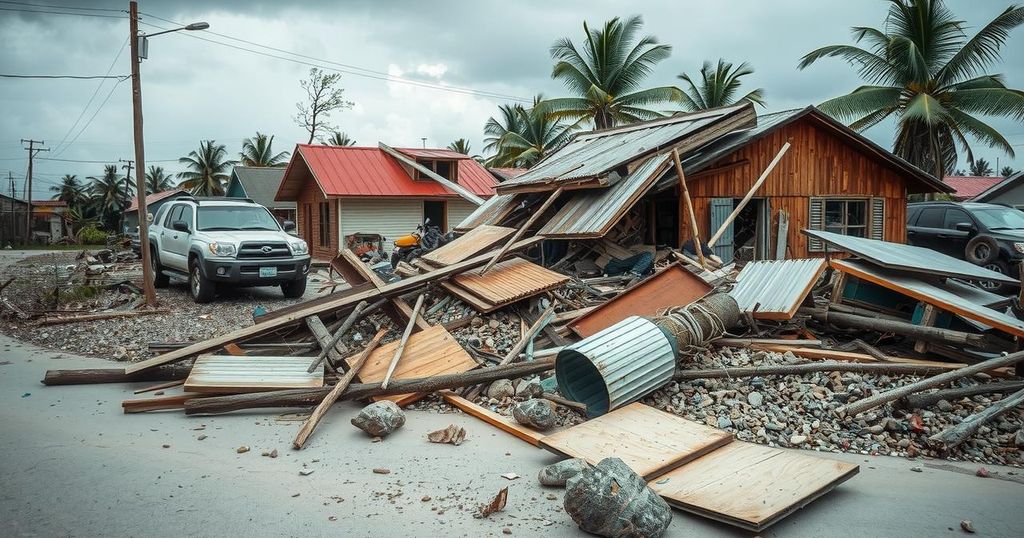Cyclone Chido Causes Widespread Destruction Across Mozambique, Leaving 34 Dead

Cyclone Chido has devastated Mozambique, causing 34 deaths and widespread destruction. It originated in Cabo Delgado, causing severe infrastructural damage and displacing thousands. Authorities urge for aid and community awareness as the storm, now downgraded, continues to impact provinces, exacerbating existing vulnerabilities.
Cyclone Chido has wreaked havoc across Mozambique, claiming at least 34 lives and displacing thousands of individuals. The storm made landfall earlier this week in the Cabo Delgado province, where initial casualties were reported. The powerful cyclone brought wind speeds reaching 260 kilometers per hour and heavy rainfall, causing extensive damage to homes and infrastructure. As the cyclone progresses towards the provinces of Tete and Niassa, the authorities have launched appeals for assistance, urging communities to remain vigilant and heed safety warnings. Although the cyclone’s intensity has diminished, heavy rains and winds persist, heightening risks for affected populations. Relief efforts are being coordinated to assist the most vulnerable, including a significant number of children and families at risk due to the cyclone’s aftermath.
Mozambique is frequently subjected to severe cyclones due to its geographical location along the Indian Ocean, making it vulnerable to intense storms and their disastrous impacts. Cyclone Chido represents a significant disaster, particularly in already vulnerable areas grappling with issues related to conflict, poverty, and inadequate infrastructure. The National Institute for Risk and Disaster Management is tasked with coordinating disaster response and recovery efforts in Mozambique, working alongside international organizations like UNICEF and Save the Children to ensure aid reaches those in need.
In summary, Cyclone Chido has resulted in considerable loss of life and extensive property damage in Mozambique, particularly affecting the provinces of Cabo Delgado, Nampula, and Niassa. With urgent calls for aid and ongoing risks from heavy rains, both local authorities and international organizations must collaborate effectively to support the affected communities and mitigate further disasters. The situation underscores the need for continued vigilance and preparedness in the face of such climatic challenges.
Original Source: www.rfi.fr







